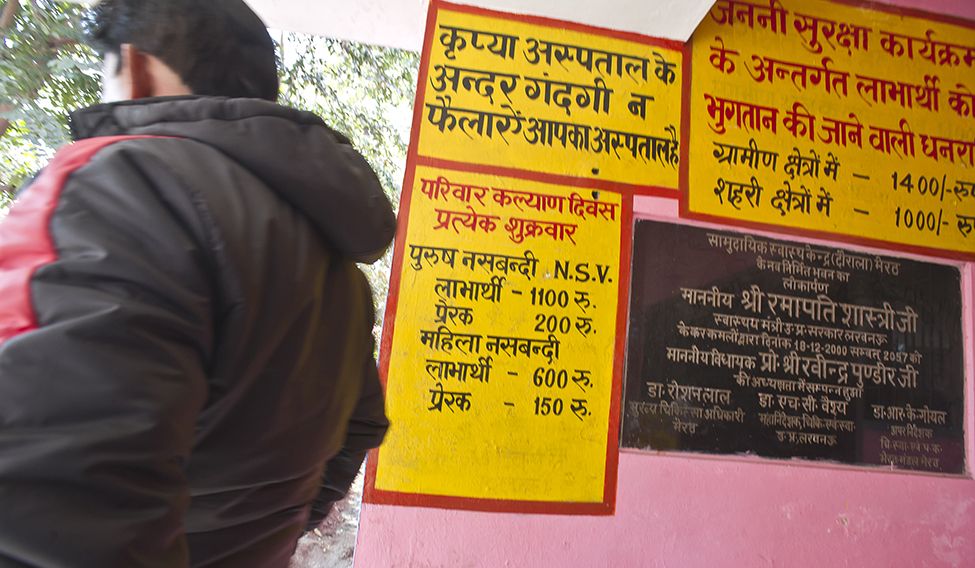The National Health Policy (NHP), 2017, calls for greater focus on male sterilisation.
NHP, unveiled last week, calls for greater focus on male sterilisation as part of its latest measures to stabilise population.
The policy document states that the government aims to increase the proportion of male sterilisation from less than five per cent to at least 30 per cent, and much higher.
The figures for male sterilisation are abysmal. According to the data from the National Family Health Survey (2015-16), the figures for male sterilisation in India stand at 0.3 per cent, down from one per cent in the last survey (2005). This, however, is in sharp contrast to the high rates for female sterilisation—36 per cent.
Prior to the National Health Policy' s thrust on male sterilisation, the move had also been emphasized in the National Policy for Women, released by the ministry of women and child development last year.
These policy measures have come in the wake of the debate over female sterilisation, or hysterectomies, particularly after 15 women died in a sterilisation camp in Chhattisgarh in November 2014. In the latest issue of the Indian Journal of Medical Ethics, a paper on female sterilisation in India describes how doctors in Karnataka pushed women to undergo hysterectomies by instilling a fear of cancer in them.
The authors note that most of the hysterectomies were "medically unwarranted", "highly suspect diagnostic criteria" was deployed and even the women's medical records were "manipulated".
While greater focus on male sterilisation is a welcome move—it shifts the burden of contraception from women to some extent—NGOs such as the New Delhi-based Centre for Health and Social Justice (CHSJ) argue that "permanent methods like sterilisation" (which are inappropriate for the younger reproducing couples in India) should be de-emphasised. Instead, the focus should be on spacing methods of contraception.





